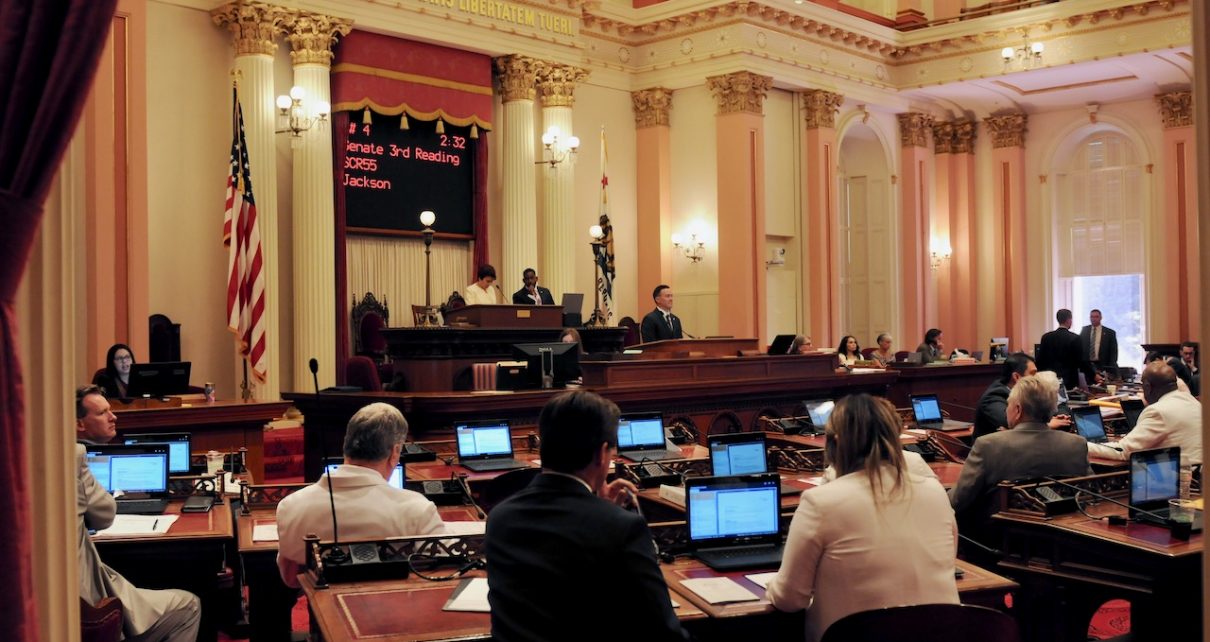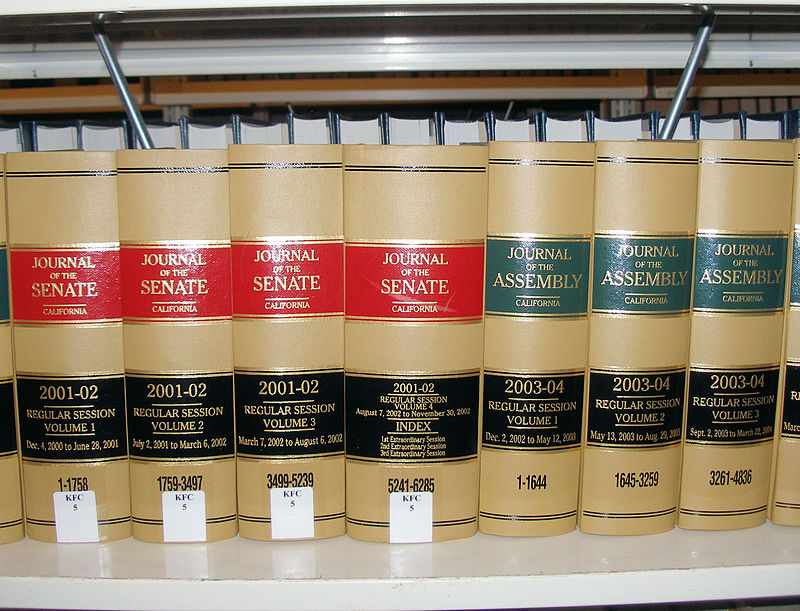
California State Senate. (Photo: Kevin Sanders for California Globe)
Items on Concurrence in the California Legislature
Concurrence is the method by which the house of origin agrees to the amendments made in the other house
By Chris Micheli, August 24, 2022 10:38 am
At this time of year in the Legislative Session, Assembly Bills that were amended in the Senate are returning for a concurrence vote in their house of origin and Senate Bills that were amended in the Assembly are returning for a concurrence vote in their house of origin. Of course, concurrence is the method by which the house of origin agrees to the amendments that were made to a bill by the other house.
In the Assembly, concurrence in Senate amendments is dictated by Assembly Rule 77, which specifies that a vote on concurrence may not be taken until the bill has been on the unfinished business file for one calendar day. However, this rule can be suspended by a majority vote, which generally happens during the last week of the Session.
In addition, the 1-day wait does not apply in three circumstances:
- The last two legislative days preceding the January 31 bill passage deadline
- The last two legislative days preceding the scheduled commencement of the interim study recess (in the odd-numbered year), or
- The last two legislative days preceding the scheduled commencement of the final recess (in the even-numbered year).
Finally, under AR 77, Senate amendments to Assembly bills are not be concurred in until both of the following have occurred:
- An analysis of the bill has been distributed by the Assembly Floor Analysis Unit and a copy placed upon the desks of the Members, unless otherwise ordered by the Speaker.
- The bill has been published on the Internet in its final form for at least 72 hours prior to that vote.
In the Senate, concurrence in Assembly amendments is dictated by Senate Rule 29, which simply provides that a Senate bill returned from the Assembly for concurrence in Assembly amendments may not be considered until it appears under Unfinished Business on the Daily File and an analysis is provided to each Senator. Therefore, once a Senate Bill is back, and a floor analysis has been provided, the measure can be voted on. There is no waiting period as the Assembly requires.
- Commercial Fishing - February 26, 2026
- Are These Extra Words Needed in California Statutes? - February 25, 2026
- Attorneys-in-Fact in Probate - February 25, 2026




